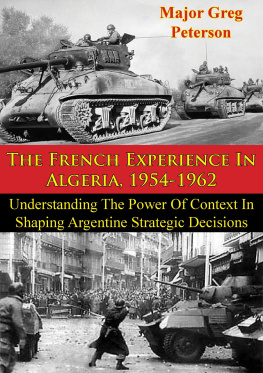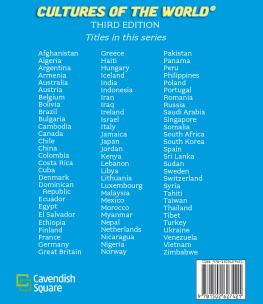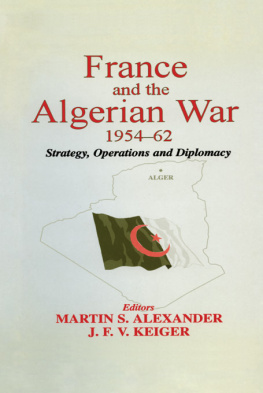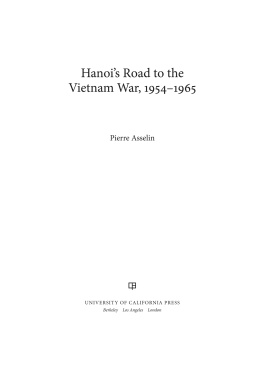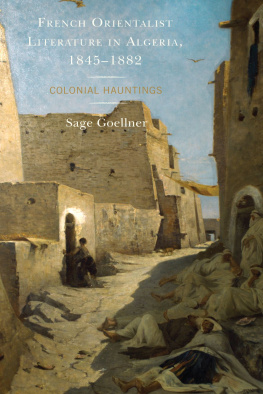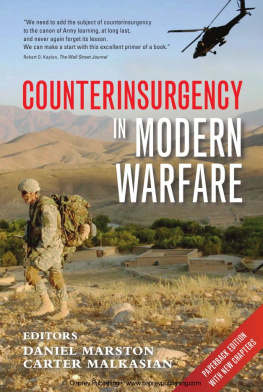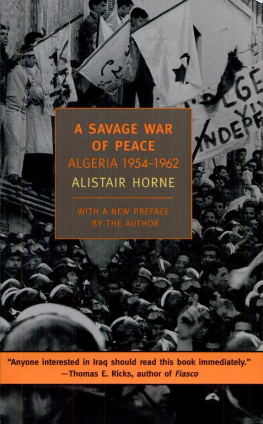This edition is published by PICKLE PARTNERS PUBLISHINGwww.picklepartnerspublishing.com
To join our mailing list for new titles or for issues with our books picklepublishing@gmail.com
Or on Facebook
Text originally published in 2003 under the same title.
Pickle Partners Publishing 2015, all rights reserved. No part of this publication may be reproduced, stored in a retrieval system or transmitted by any means, electrical, mechanical or otherwise without the written permission of the copyright holder.
Publishers Note
Although in most cases we have retained the Authors original spelling and grammar to authentically reproduce the work of the Author and the original intent of such material, some additional notes and clarifications have been added for the modern readers benefit.
We have also made every effort to include all maps and illustrations of the original edition the limitations of formatting do not allow of including larger maps, we will upload as many of these maps as possible.
THE FRENCH EXPERIENCE IN ALGERIA, 1954-1962: BLUEPRINT FOR U.S. OPERATIONS IN IRAQ
by
MAJOR GREG PETERSON
TABLE OF CONTENTS
Contents
ABSTRACT
In 1954 the French Armed Forces began a campaign in Algeria against the insurgent Front de Liberation Nationale (FLN) which had started a bloody uprising against French sovereignty. Initially, the French military did not have a viable counterinsurgency doctrine that was effective in defeating the FLN and destroying its network. It took them four years of trial and error to develop a doctrine and operational concept able to defeat the FLN inside Algeria and prevent outside assistance from reconstituting the FLN. By 1960 it was apparent the FLN could not win the liberation of Algeria militarily. However, the political situation respective to France and Algeria internally and internationally by then had changed to the point that military operations in the field were not going to affect the political outcome in Algeria. The French Armed Forces took too long to adopt an effective doctrine to combat the insurgent threat and by the time they were effective it was irrelevant.
Currently the U.S. is in occupation of Iraq and exercising sovereignty in that state. The U.S. Armed Forces are conducting counterinsurgency operations to defeat and dismantle the Former Regime Loyalists and various Islamic fundamentalist organizations inside the country. U.S. Armed Forces do not have an overarching counterinsurgency doctrine that is applicable to their operations in Iraq and similar to the French in Algeria they are going through a learning process. Even though the U.S. will turn sovereignty back over to the Iraqis it is likely that U.S. forces will remain in the country for the foreseeable future. It is the authors assertion that by studying the French experience in Algeria the U.S. Armed Forces can learn from the mistakes and victories of the French and hasten the learning process for counterinsurgency operations in Iraq. The U.S. cannot afford to waste time through trial and error in developing doctrine and operational concepts to defeat the enemy. The French experience in Algeria demonstrates what can happen when a military takes too long to adapt to a changed battlefield. The U.S. must look at the operations and doctrine the French employed in Algeria and apply those applicable concepts now to develop a successful doctrine for current operations in Iraq.
CHAPTER ONEINTRODUCTION
On November 1 1954, the Front de Liberation Nationale (FLN) began a long insurgent campaign against French sovereignty in Algeria. France had exercised control over Algeria since the 1830s and Algeria was considered part of the French Union and the Fourth Republic. Initially, the French military did not have a viable counterinsurgency doctrine that was effective in defeating the FLN and destroying its network. It took the French four years of trial and error, along with applying their experience in Indochina, to develop a doctrine and operational concept and framework able to defeat the FLN inside Algeria and prevent outside assistance from reconstituting the FLN. By 1960, it was apparent the FLN could not win the liberation of Algeria militarily. However, the political situation internal to France and Algeria, and the international political situation had by then changed to the point that military operations in the field were not going to affect the political outcome in Algeria. Part of the dilemma was the French Armed Forces took too long to adopt an effective doctrine to the insurgent threat. By the time the French Armed Forces had defeated the FLN militarily it no longer mattered. International politics abroad and domestic politics in France had determined that Algeria was no longer worth the cost for France. The military victory had become irrelevant to the outcome of the war.
The United States along with its Coalition partners and allies invaded Iraq in the spring of 2003 and overthrew the Saddam Hussein regime. The U.S. is currently the sovereign power in Iraq and conducting counterinsurgency operations against remnants of the Baath Party and various affiliates of Al Qaeda. The U.S. currently finds itself in a situation somewhat similar to the French in Algeria in 1954. These similarities are 1) the U.S. is a Western power exercising sovereignty over an Arab state, just as France did over Algeria. 2) This sovereignty faces opposition by a political/military organization whose expressed purpose is to force the Western nation to leave the Arab country. 3) The sovereignty of the Western power/Coalition is not looked upon favorably internationally, especially in the Muslim world. 4) The issue of Iraq is a divisive topic in domestic politics in the United States, just as Algeria was in France. 5) Both Algeria and Iraq possess long borders with neighboring states through which supplies and manpower are able to get into the country. 6) The majority of the United States military, especially its Army, just as the French military in 1954, is designed to engage in mid-high intensity conventional operations against a conventional foe. 7) The French at the start of the insurgency in 1954 did not have a viable counterinsurgency doctrine applicable to the situation in Algeria, understood by all its soldiers, or taught at service schools, designed to defeat and neutralize the FLN. Currently, the U.S. military does not have a viable counterinsurgency doctrine, understood by all soldiers, or taught at service schools, designed to defeat and neutralize the Baathist and Al Qaeda, which is applicable to their situation on the ground in Iraq.
Although there are many similarities there are two glaring differences between the French position on Algeria and the U.S. position on Iraq. That first difference is one of ultimate aims. France wished to maintain sovereignty over Algeria and keep it a part of France. The U.S. aim is to return sovereignty to a stable and democratic government in Iraq. There is no desire in the U.S. to maintain sovereignty indefinitely in Iraq. The second difference is there is not a substantial minority of American civilians living in Iraq as there was of French citizens living in Algeria. Approximately one in nine persons living in Algeria was French and they exerted a huge influence on the government in Paris. Any hopes of a political settlement had to take them into account and they were very often not amenable to a peaceful power sharing agreement with the insurgents or talk of an independent Algeria. This would be the equivalent in Iraq of having about 2-3 million U.S. citizens living in Iraq and many of them having the feeling Iraq should become the 51 st state.


